Our coding standards ask that we minimise the use of C# var (suggests limiting it's use to being in conjunction with Linq). However there are times when using generics where it's reasonably convenient e.g.
Dictionary<DateTime, Dictionary<string, float>> allValues = ...
// ...
foreach (var dateEntry in allValue)
is easier to type
foreach (KeyValue<DateTime, Dictionary<string, float>> dateEntry in allValue)
(and easier than remembering what the explicit type is in some cases).
Do any of the refactoring tools have the ability to convert the former to the latter. I've had a look at Resharper but it doesn't seem to do (indeed it's default suggestion is to go in the opposite direction).


